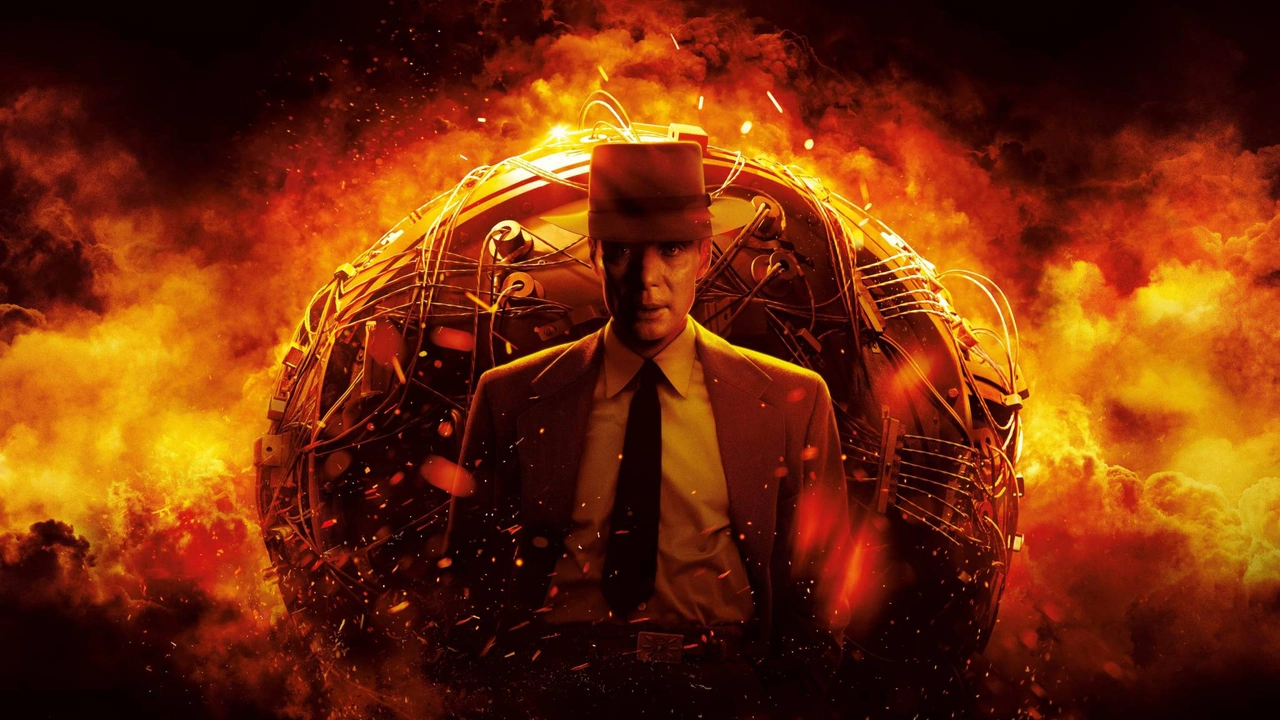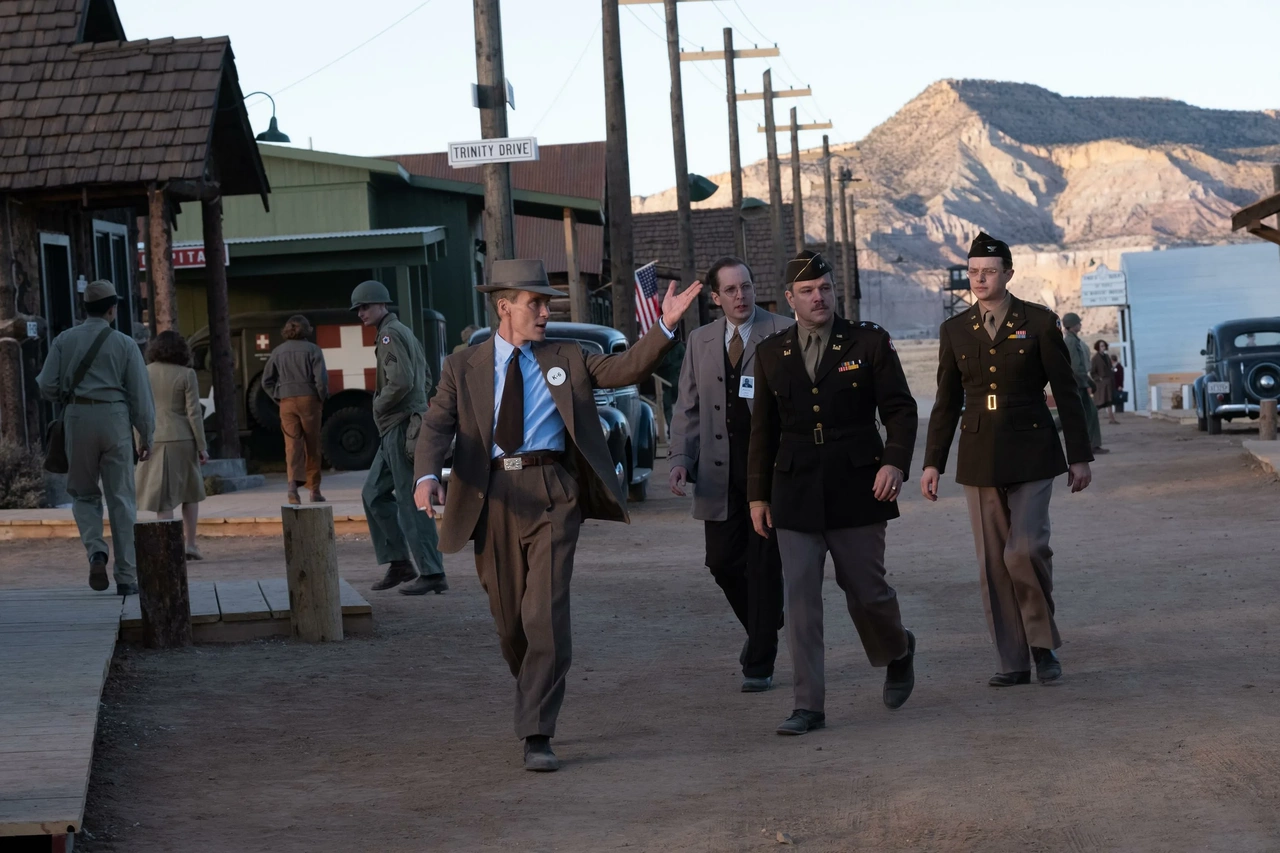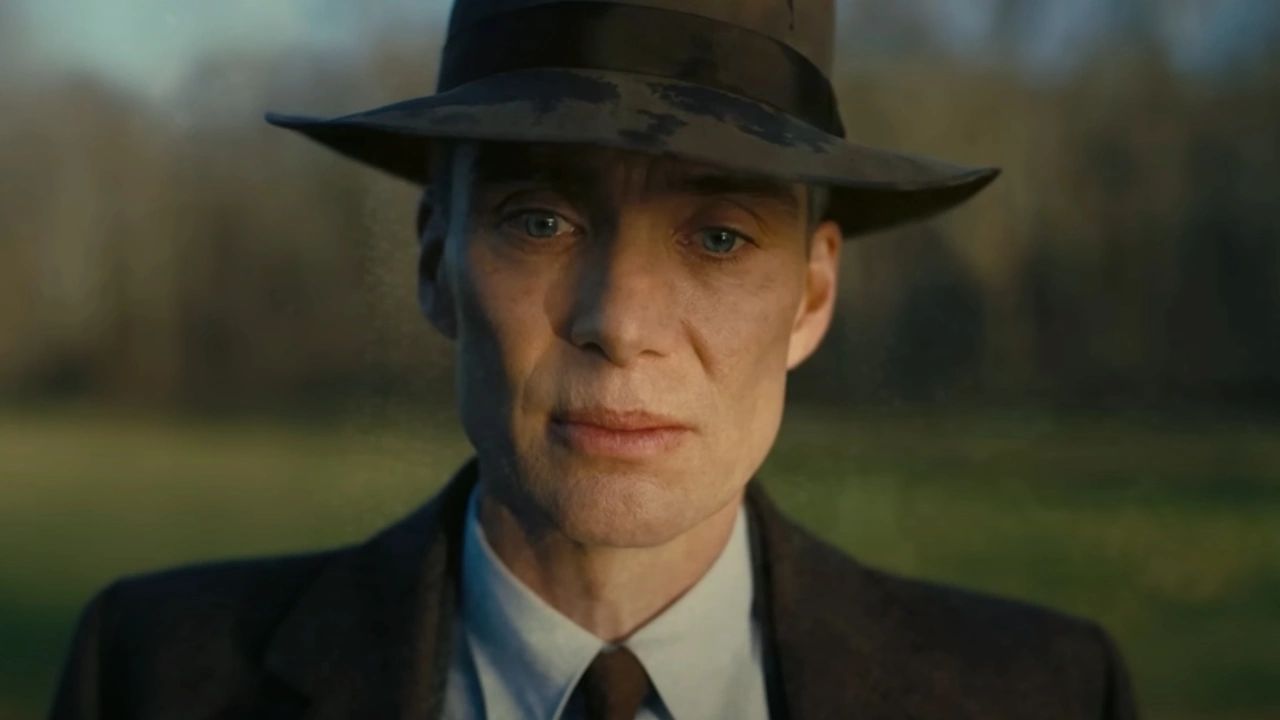Oppenheimer: When Nolan Tried to Reinvent the Wheel 🎬⚛️
Nolan’s Signature Style on Display 🌀
If you love cinema, there’s no question you’ll eventually sit down for Christopher Nolan’s Oppenheimer. The film is, in many ways, a showcase of everything that has made Nolan one of the most influential filmmakers of the 21st century: nonlinear storytelling, dense editing, thunderous music, and an obsession with scale.
After career-defining successes like The Dark Knight, Inception, Interstellar, and Dunkirk, Nolan now sets his sights on the “father of the atomic bomb,” Robert Oppenheimer. In true Nolan fashion, the film is not content with a straightforward biopic—it is fragmented into flashbacks, multiple timelines, and heightened melodrama, designed to mirror the fractured psyche of its protagonist.

A Familiar Structure with Heavy Ambitions 📚
Nolan leans heavily on the storytelling framework pioneered by Orson Welles’ Citizen Kane. Just as Kane’s wealth and influence framed his downfall, Oppenheimer’s brilliance and ambition form the heart of this narrative.
Early drafts of Citizen Kane were titled The American, and here Nolan reworks that sense of mythmaking for the 20th century’s most haunting achievement—the birth of nuclear warfare.
The film thrives on its dramatic pauses, deliberately reminding the audience of “historic moments.” A name like “Los Alamos” lands with weighted silence, inviting viewers to shiver at the thought of world-changing science in a barren desert.
This device is familiar—similar to how Gone with the Wind dropped “Gettysburg” with theatrical gravitas—but Nolan embraces it wholeheartedly, knowing audiences respond to such signals of importance.
The Gravity of Importance 🌍
One of Nolan’s recurring strategies is to remind us, insistently, that what we are watching matters. With Oppenheimer, he doubles down. The director frames Robert Oppenheimer as “the most important man who ever lived,” and by extension, the film itself becomes “the most important film you must watch.”
The tone is drenched in gravitas. Every glance, every whispered scientific formula, every swelling orchestral hit signals significance. This is not merely a story—it is an Event.
Nolan’s mastery of cinematic language ensures that critics, awards bodies, and audiences are all drawn into the aura of prestige. But prestige can sometimes weigh too heavily, turning ambition into self-importance.

The Anatomy of the Film ⏳
At nearly three hours, Oppenheimer is both sprawling and claustrophobic. The first two hours are dense with physics jargon, political maneuvering, and character introductions—from scientists of the 1930s to military officials shaping the Manhattan Project. The pacing is deliberate, methodical, and at times overwhelming, leaving audiences caught in a whirlwind of names, theories, and moral dilemmas.
When the long-anticipated test finally arrives, the film shifts gears. The spectacle is undeniable—the desert trial, filmed with practical effects instead of CGI, is a jaw-dropping cinematic achievement.
Yet the narrative puzzle Nolan so carefully assembled begins to fracture. The last hour spills into courtroom politics, reputation battles, and philosophical debates. What should feel like a devastating climax often disperses into fragments of noble intention mixed with ego-driven storytelling.
Nolan’s Triumphs and Missteps 🎭
There is no denying Nolan’s talent—few directors could make three hours of scientists talking about equations feel as tense as a thriller. His technical precision, visual ambition, and orchestral power remain unmatched. But Oppenheimer also reveals the limits of his approach.
The film strives to reinvent the biopic, yet often circles back to familiar Nolan patterns: labyrinthine timelines, operatic sound design, and grand speeches that announce themes rather than let them emerge naturally.
Where his earlier work balanced puzzle-box structures with emotional resonance, here the balance tips, leaving some viewers awed but others exhausted.

Final Verdict ⚖️
Oppenheimer is undeniably ambitious—a monumental attempt to tell the story of genius, destruction, and moral reckoning. It is also undeniably flawed, weighed down by its own sense of importance and Nolan’s signature excesses.
The film is still essential viewing: a technical marvel, a cultural conversation piece, and an unsettling reflection on the birth of humanity’s most dangerous weapon. But it is not the flawless reinvention of the biopic Nolan may have hoped for. Instead, it stands as both a triumph and a cautionary tale—proving that even the most celebrated filmmakers cannot always reinvent the wheel.
Score: 7.5/10.
Close